THE HUNGER GAMES: THE BALLAD OF SONGBIRDS & SNAKES (2023)
Coriolanus Snow mentors and develops feelings for the female District 12 tribute during the 10th Hunger Games.
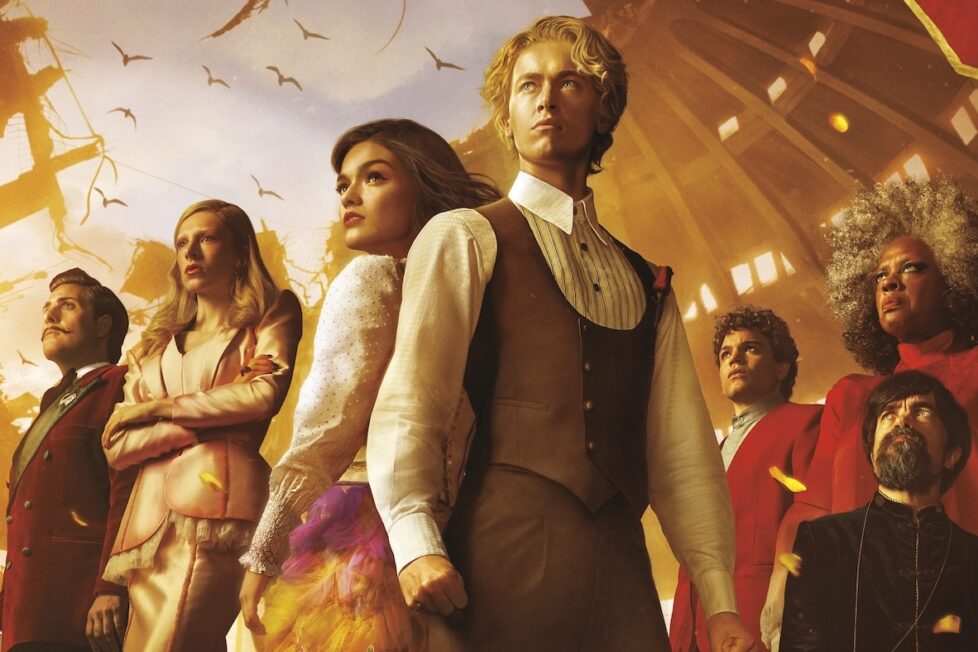
Coriolanus Snow mentors and develops feelings for the female District 12 tribute during the 10th Hunger Games.


Embarking on a chilling odyssey into the formative years of tyrannical President Coriolanus Snow (Tom Blyth), The Hunger Games: Ballad of Songbirds and Snakes, based on Suzanne Collins’s novel, serves as a poignant prequel to the four-part dystopian saga (2012-15). As we delve into Snow’s enigmatic past, the film revolves around his reluctant mentorship of Lucy Gray Baird (Rachel Zegler) in the 10th annual Hunger Games, unveiling a heartbreaking love story against the brutal backdrop of the Capitol’s twisted spectacle.
While the film provides fleeting entertainment, showcasing the transformation of a stagnant Hunger Games into the grand spectacle it would become under Katniss Everdeen’s reign, it fails to evoke warmth, empathy, or hope in its audience, leaving us with a sense of detachment rather than excitement, introspection, or inspiration.
The latest (and hopefully final) instalment in the franchise delivers a captivating narrative, complemented by strong performances and a hauntingly beautiful score. Blyth’s portrayal of the young Coriolanus Snow is a tour de force, capturing the essence of a character teetering on the precipice of darkness. His nuanced performance breathes depth into the future tyrant, offering glimpses into the making of a cold-hearted leader. The film’s emotional resonance is further amplified by the haunting score, which harmonizes seamlessly with Rachel Zegler’s exceptional vocal talent, creating an atmosphere that echoes the narrative’s intensity.
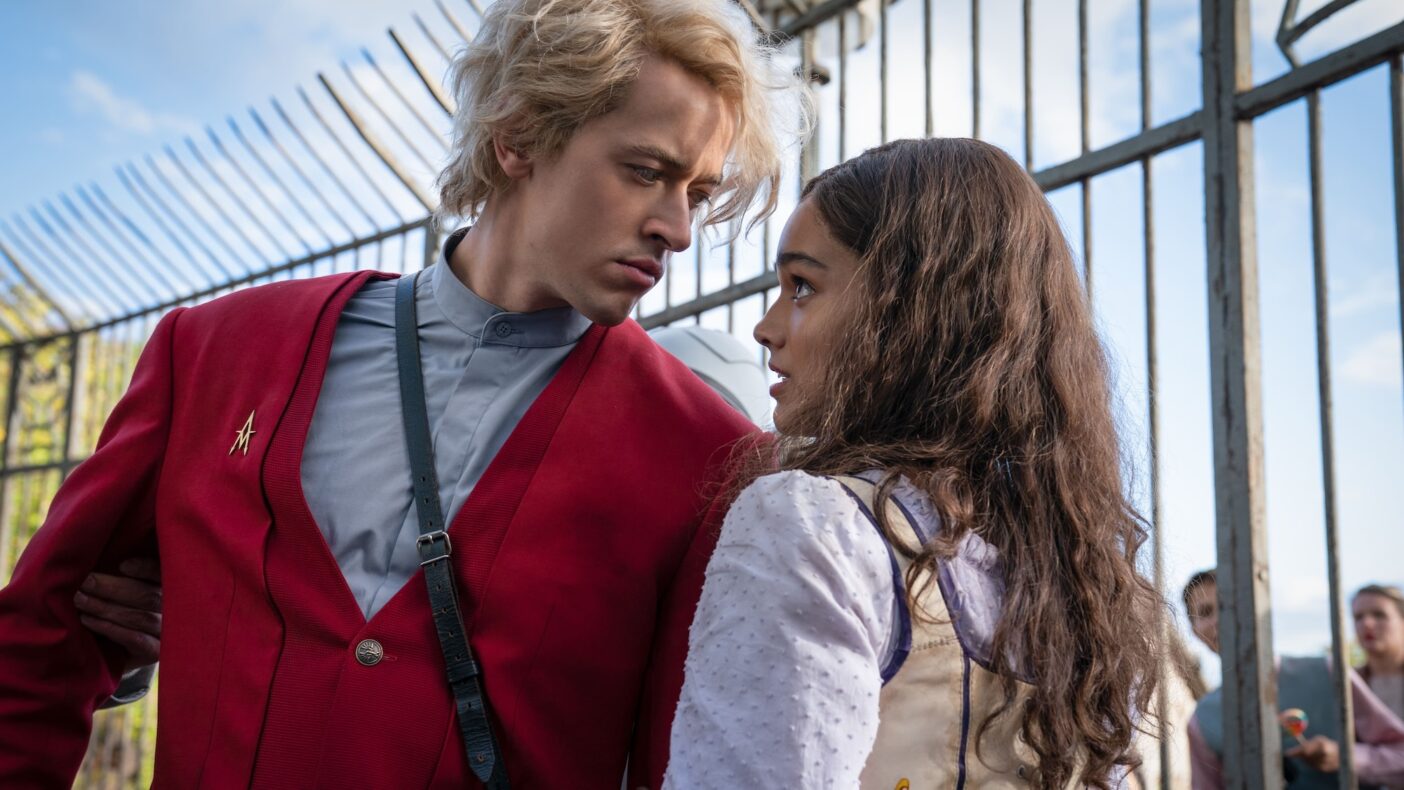
Viola Davis breathes life into the character of Dr Gaul, elevating her from a flat, forgettable book character to a captivating, stylish, and delightfully entertaining villain. The opening act of the film takes us on an emotional rollercoaster, expertly weaving suspense, thrills, and even some dark humour, delivered with impeccable timing by Lucius “Lucky” Flickerman (Jason Schwartzman). The film’s visual splendour, evident in its exquisite costumes and breathtaking scenery, stands in stark contrast to its dark and foreboding narrative. From the rainbow-hued but deadly snakes to Lucy Gray’s vibrant, feminine gown, the costumes and set pieces add a much-needed counterpoint to the film’s sombre tone.
However, while the film tackles ambitious themes of trust, generational fate, and the inherent darkness of human nature, it falters in its execution, offering a bleak and uninspired conclusion devoid of redemption or hope. The narrative succumbs to a cynical view of humanity, suggesting that we are inherently flawed and destined to resort to desperate measures for survival. The characters, initially promising, fail to realize their full potential, exhibiting either naivete or reluctant acceptance. This lack of moral complexity prevents the story from reaching its full potential.
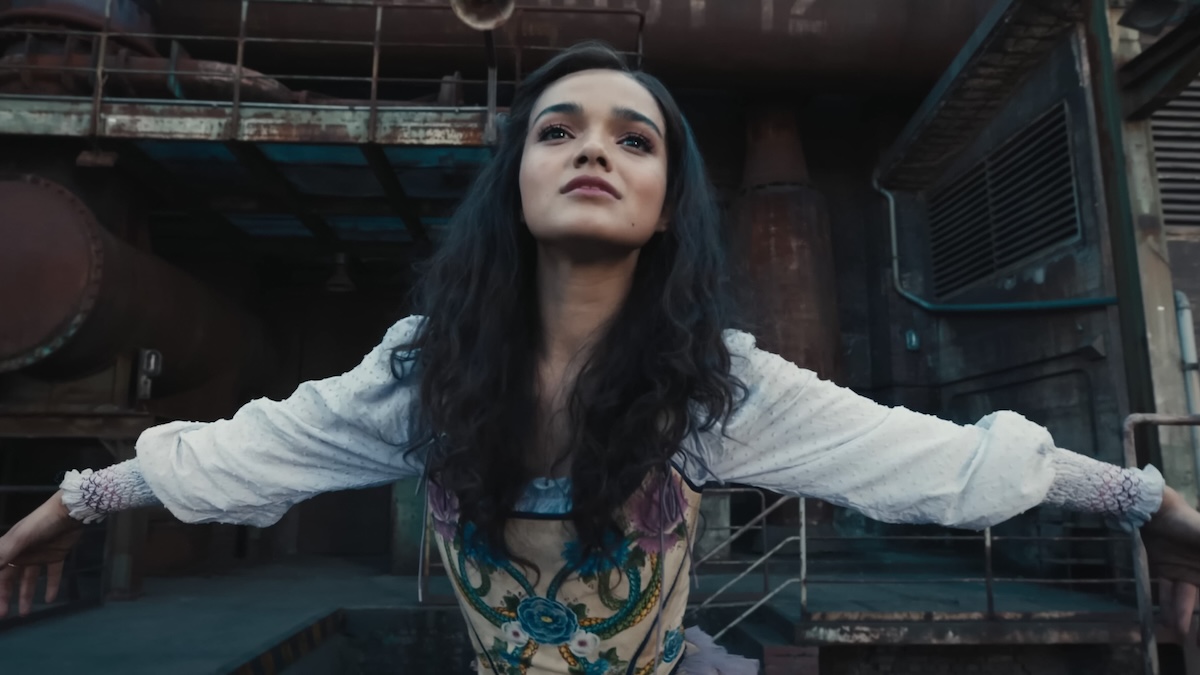
Rachel Zegler’s portrayal of Lucy Gray Baird, intended as a counterpoint to Coriolanus, underscores hardness rather than hope. This interpretation downplays the character’s potential as a beacon of positivity, leaving the film lacking the optimism needed to offset its sombre themes. Intriguing characters with moral compasses, such as the academy head Snow attends and the remorseful architect of the Hunger Games, Dean Highbottom (Peter Dinklage), and Coriolanus’ companion Sajanus (Josh Andres Rivera), are disappointingly underutilized.
Highbottom’s aversion to the Games and suspicion of Snow’s motivations hint at a multifaceted character whose charitable acts are largely unseen. This is regrettable, as Dinklage’s portrayal of the Dean, a drug-addled curmudgeon, stands as one of the film’s early triumphs. Later, Dinklage subtly conveys the depth and complexity that the director, in his artistic judgment, omitted from the narrative.
While Sejanus’s character, who moved to the Capitol from District 2 after his family made money during the war, introduces an intriguing thread of cultural duality and family ties, his portrayal by Rivera falls short of capturing the character’s depth. Unlike Dinklage’s nuanced performance, Rivera’s interpretation remains surface-level, failing to delve into the complexities of Sejanus’s inner turmoil. This missed opportunity for deeper exploration leaves a void where a compelling character arc could have flourished.
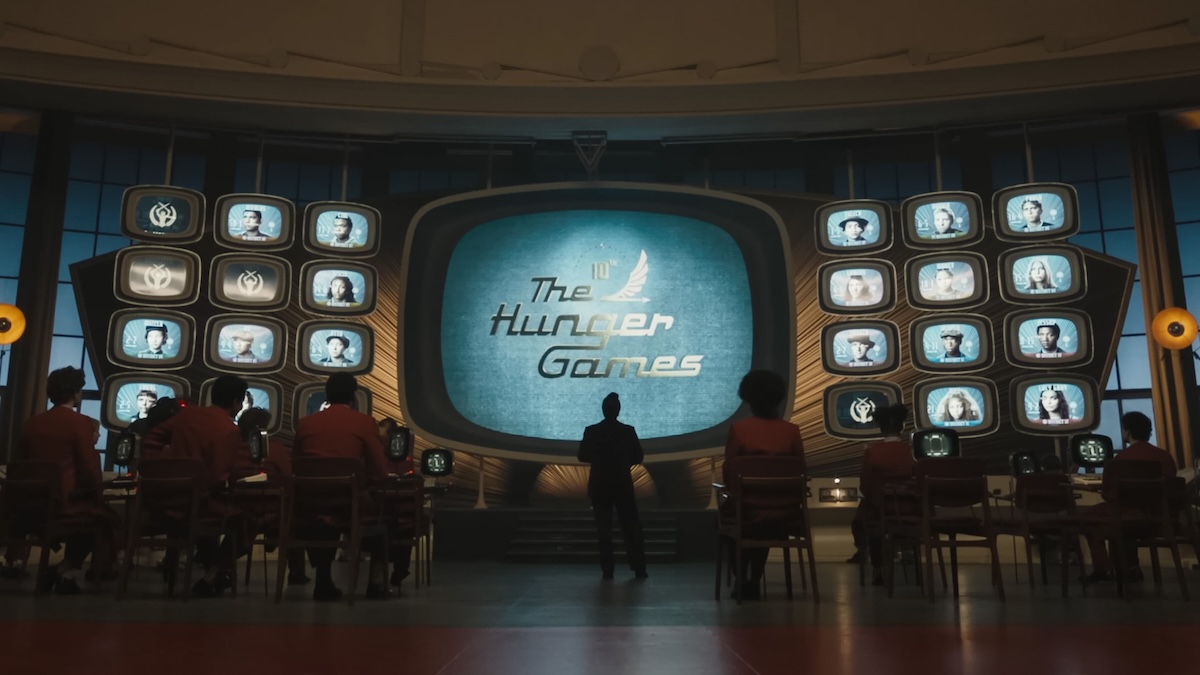
Two decades ago, before we were fascinated with portraying sympathetic devils in cinema, Sejanus Plinth could have easily claimed the limelight in this prequel. Audiences would have empathised with his torment, forced to play a part in the subjugation of his former friends and neighbours. We could have witnessed Snow’s ascent to power through the eyes of a kind-hearted but naïve and gullible outsider from the Capitol, who belatedly discovers that his “friend” is no better than the manipulators orchestrating the Hunger Games. Highbottom’s redemption arc could have played a pivotal role in this narrative, allowing his character to achieve closure rather than simply disappearing. However, in our increasingly morbid world, we’re compelled to follow a character whose path is already predetermined, leaving no space for redemption or surprise.
The film’s third act pales in comparison to its source material. In the book, the latter portion of the story builds upon the momentum of the first two acts, delivering a satisfying and poignant conclusion. However, the film’s third act falls flat, lacking the emotional resonance and narrative cohesion of its written counterpart.
For those hoping the film would revitalize the final act, disappointment awaits. Coriolanus’ inner monologue, which provided valuable insights into his motivations and character development in the novel, is absent in the film. This omission makes his transition from a compassionate protagonist to a ruthless antagonist even more abrupt and unconvincing.
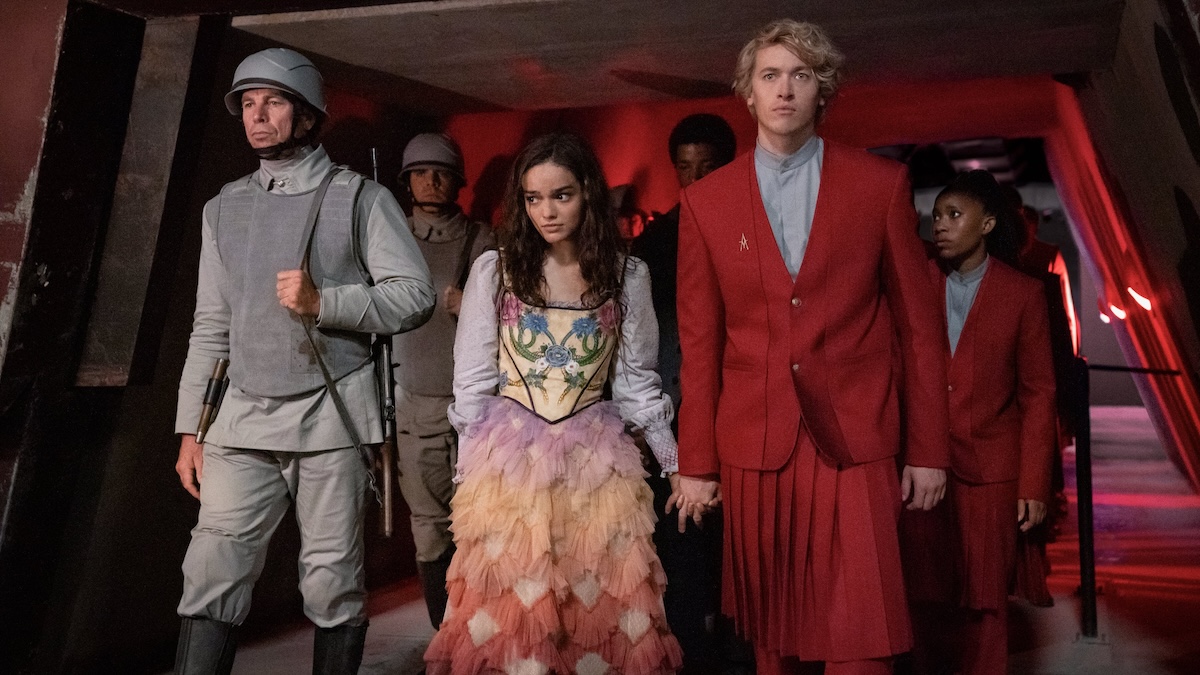
The characters of District 12, while intended to evoke sympathy, fail to connect on a deeper level. Their portrayals are often one-dimensional, lacking the complexity and relatability that would have drawn viewers into their struggles. As a result, the film’s attempts to elicit empathy fall short, leaving viewers emotionally detached from the characters’ plight.
The Hunger Games: Ballad of Songbirds and Snakes undoubtedly delivers entertainment, but its dark undertone and absence of a redemptive arc leave audiences with a sense of emotional depletion and a lingering feeling of despair. Much like those driven to rationalize the actions of villains, the film mirrors the grim realities reflected in daily news headlines—wars, famine, and catastrophe—without offering a glimmer of hope amidst the darkness.
If you’re drawn to narratives that delve into the backstories of villains, or if you simply seek a reasonably engaging cinematic experience, this film will likely meet your expectations. However, those seeking a more uplifting or cathartic cinematic experience may find themselves feeling emotionally drained and intellectually unsatisfied. Films like this Hunger Games prequel entertain but don’t provide joy and harsh truths without solutions. These types of films, no matter their critical reception, quickly leave the minds of their viewers and offer no lasting impression on the next generation.
USA | 2023 | 157 MINUTES | 2.39:1 | COLOUR | ENGLISH


director: Francis Lawrence.
writers: Michael Lesslie & Michael Arndt (based on the novel by Suzanne Collins).
starring: Tom Blyth, Rachel Zegler, Peter Dinklage, Jason Schwartzman, Hunter Schafer, Josh Andrés Rivera & Viola Davis.
